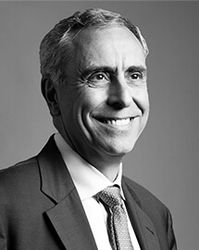CACEIS has undergone a significant transformation since its creation in 2005 from the merger of Credit Agricole and Caisse d’Epargne. Since then, it has built on its core asset servicing strength in France and Luxembourg to extend its coverage in Europe and into new parts of the world.
In July, CACEIS completed the acquisition of RBC Investor Services’ operations in Europe and Malaysia. In 2019, it finalised the purchase of Dutch custodian and pension services specialist Kas Bank, thereby taking on Kas’ book of business in the Netherlands, Germany and the UK.
Prior to that, in 2019, CACEIS reached an agreement to combine its custody and asset servicing operations with Santander’s posttrade arm, Santander Securities Services (S3), resulting in the transfer of 100 per cent of S3 Spain and 50 per cent (minus 1 share) of S3’s operations in Latin America to CACEIS.
Crédit Agricole and Santander respectively owned 69.5 per cent and 30.5 per cent of CACEIS after the deal, with the transaction extending CACEIS’ service coverage in Spain and into Latin America, with operations in Brazil, Columbia and Mexico.
This strong expansion tells a vibrant tale of organic growth and acquisition. CACEIS is now providing custody for more than €4.6 trillion in client assets and close to €3.3 trillion in assets under administration, currently offering services in 17 countries globally and with more than 7000 staff on its payroll across the group.
With this growth, chief executive Jean-Pierre Michalowski, who took over in March from longstanding CEO Jean-François Abadie, is steering a larger and more globally itinerant ship than in the early years after CACEIS’ formation.
Retaining and adding value
Reflecting on the strategy that has driven these business purchases, Saliba indicates that the bank is focused on retaining and adding value through each of these transactions.
 “The combined entity needs to build on the value brought to the transaction by each of its components and apply this to deliver stronger service, wider coverage and greater shareholder value through the integration,” he says.“So when I am asked about my priorities when managing an acquisition, this invariably comes back to the word ‘retention’,” continues Saliba. “That is both retention of the clients and retention of our key employees. All parties to the acquisition need to understand why we are doing the deal and how this will deliver a better outcome for our clients, staff and shareholders.”
“The combined entity needs to build on the value brought to the transaction by each of its components and apply this to deliver stronger service, wider coverage and greater shareholder value through the integration,” he says.“So when I am asked about my priorities when managing an acquisition, this invariably comes back to the word ‘retention’,” continues Saliba. “That is both retention of the clients and retention of our key employees. All parties to the acquisition need to understand why we are doing the deal and how this will deliver a better outcome for our clients, staff and shareholders.”
Applying this message to specific examples, Asset Servicing Times asked Saliba to explain why RBC I&TS was an attractive target for CACEIS and why the time was right, in 2023, to announce the purchase.
“In business, timing is everything,” he responds. The senior management team at CACEIS had been in discussion with seniormanagement at RBC for a number of years. Both sides identified synergies between the two banks and had discussed opportunities on several occasions since 2014 to combine their asset servicing expertise. In 2020, the Covid pandemic prevented significant advances in these negotiations. But, when the impact of Covid subsided, senior management within the two organisations felt that the conditions were right fora successful marriage of the two organisations.
Saliba highlights several primary drivers. One was to reinforce the expansion of CACEIS’ fund services footprint in Europe for traditional and private assets. “At CACEIS we were looking to position ourselves in the top tier players in the most important fund jurisdictions in Europe, notably in Luxembourg and Ireland,” he says. “With this transaction, we will be among the top three providers in Luxembourg, and top five in Ireland. That is critical for us.”
This will also reinforce CACEIS’ expertise in alternative investment fund (AIF) services. He notes that the bank has invested heavily in its product set and expertise since 2014 and it has extended its coverage in AIF accounting, distribution support and depository services. “By combining the two businesses, we aim to become a market leader in Europe for private asset administration.”
A further attraction is that the client base for RBC I&TS complements the existing client coverage at CACEIS. RBC I&TS has a wide list of blue-chip names and a significant clientele from the English-speaking markets. CACEIS has a strong European book of business and has delivered robust organic growth over the past few years. “The deal widens our client coverage and adds new flagship brand-name fund houses to our business portfolio,” comments Saliba.
Significantly, Saliba indicates that the RBC purchase provides valuable technical and operational resources to support CACEIS’ future expansion strategy. With the purchase, CACEIS has acquired an operations service centre in Kuala Lumpur with more than 1200 staff. “These are highly skilled and energised, with a strong knowledge of the asset servicing industry,” says Saliba. “This provides us with a crucial resource that will enable us to move our business forwards.”
Follow the sun (with local presence)
Prompted on how this would reinforce the bank’s global operational coverage, Saliba explains that CACEIS already offers follow-the-sun service coverage through its operations centres in Hong Kong, Europe and Toronto.
However, acquiring the Kuala Lumpur service centre from RBC I&TS adds further scale and operations talent to its global coverage. While the Hong Kong centre has a staff complement of about 100, the Malaysian centre is many times bigger.
Regional service centres sit at the heart of CACEIS’ global operating model, but client proximity remains essential to the company’s working culture. “Regardless of the business model we employ to provide efficient service across time zones, this is always supported by a strong local presence close to our clients,” he explains.
CACEIS now lists roughly 30 market-leading US fund houses among its core clients. Since acquiring RBC’s European asset servicing activities on 1 July 2023, CACEIS now has a representative office in New York which particularly supports the activities of North American asset management firms as they extend business into new markets outside of the US.
The rep office team offers representational and administrative activities relating to custody and fund administration, transfer agency and ancillary services, as well as providing a liaison between US clients and CACEIS’ global operations departments. The US-based names represent an important component of CACEIS’ client base, says Saliba, with a number of large US-based global asset managers expanding their fund range in major European fund domiciles and their distribution reach into new European markets.
“These clients from the English-speaking markets sit at the heart of our growth engine,” he says. To illustrate their importance, Saliba, as deputy CEO of CACEIS has recently relocated to London, thereby positioning one of the bank’s most senior executives to be close to this client segment and to support the development of the UK market.
“Our plans for the UK centre rely heavily on extending our presence in the pensions funds market,” he explains. “We have an attractive offer for this client segment and we are confident that this will motivate UK pension funds to rethink their business models.”
A second target area for UK expansion is private asset administration. “The UK is a large market for alternative assets, particularly for private equity and real estate,” he says. “We are a major player in these spaces and identify strong opportunities to extend our market share, drawing on the expertise that we offer in AIF services from Dublin, Luxembourg, Jersey and other locations.”
Pension funds centre of excellence
Reflecting on another major purchase that CACEIS announced four years ago, the acquisition of Netherlands-based asset servicer Kas Bank, Saliba indicates that this transaction has already delivered many of the objectives that CACEIS’ leadership had targeted prior to completion.
“This deal has strengthened our coverage in the Benelux region, with the transition of Kas Bank’s clients completed in May 2021,” he says. “Additionally, CACEIS has capitalised on Kas’ impressive track record in pension fund administration, custody and analytics with the launch of a pension funds centre of excellence in the Netherlands,” he adds.
This is already reaping benefits, Saliba believes, with Blue Sky Group, an independent pensions administrator that had its origins in KLM airlines, recently committing to a full outsource of its investment administration and supporting operations. This front-to-back outsourcing package, which has been developed with Simcorp Dimension, will also deliver transaction processing and payment transactions, post-trade compliance monitoring, performance analysis, risk analysis and associated reporting obligations.
“We are also being included in large RFPs in the UK and in many other European markets, including Germany, Switzerland, Italy and Spain. So the Kas acquisition has worked well for the company,” comments Saliba.
Consistency alongside change
Almost two decades on from CACEIS’ formation, AST was interested to hear from one of its core strategists about how the bank had changed, and which facets of its culture and approach had remained broadly the same. Having been in the cockpit for much of this journey, Joe Saliba chooses to reflect first on what has changed.
CACEIS has a much broader banking network than it did in 2005, he notes, now covering 17 countries globally. This has translated into a wider client base, with CACEIS supporting clients in most major geographies, including a wide range of European locations, the US, the UK, Canada, Latin America and a number of major Asian markets.
The product offer is also much wider than it has been previously. “We now have a complete asset servicing offer covering the front to the back office,” he says, “with a more sophisticated offer for servicing alternative assets, pension funds, custody for digital and traditional assets, and a range of other segments.” This is supported by product centres of excellence in France, Luxembourg, Germany, Malaysia, Hong Kong and Madrid.
This is complemented by strong growth potential in Latin America, through CACEIS’ partnership with Santander in which CACEIS owns 50 per cent less one share. “Brazil is a large market which is heavily fragmented and we are strongly positioned through the full service offer that we provide in this location,” he says. “We are also one of the few providers to offer a comprehensive custody and fund services capability in Columbia and Mexico. There has been a strong pipeline of inquiries from global banks and brokers, and from international fund houses, inquiring whether we can service their business in Latin America.”
One fundamental that has not changed since 2005, observes Saliba, is the bank’s business culture and core values. “This centres on always trying to do the best for our clients and the best for our employees,” he says. “This has been fundamental in managing our approach during recent business acquisitions.”
With this, the bank is cautious not to lose agility in its decisionmaking structures as the organisation expands. The goal is to preserve responsive communication lines, akin to a family-sized business, even as its headcount and book of business have grown rapidly. “We take care in our management framework to minimise bureaucracy and to provide a transparent decisionmaking structure that is guided by the priorities of the client and the expertise and creativity we have within the company,” he says.
Central to the bank’s core values, says Saliba, is that CACEIS has been green well before green values started to receive their recent prominence. This is characterised in its ESGClimate Reporting solution, for example, which is designed to help institutional investors and asset management companies to evaluate their portfolios according to ESG-Climate criteria and to provide fully transparent information on the social and environmental impact of their investment decisions.
Another guiding value is a commitment to technology development and digital innovation. “We continue to invest consistently in our IT infrastructure, including Olis, the single access portal for all CACEIS’ digital and traditional services, and Teepi, a regulatory platform supporting data exchange between institutional investors and financial regulators,” says Saliba.
To extend client access to a wide range of third-party fintech solutions, CACEIS introduced its Connect Store in late 2022, where CACEIS serves as an aggregator, enabling clients to connect thirdparty solutions into their workflow, using APIs to deliver secure access for the fintech to the client’s data.
It has also released a digital asset platform, labelled the Digital Assets Factory, which was built in collaboration with Swiss distributed ledger technology (DLT) company Taurus.
This offers modules to support token issuance (known as Taurus Capital), custody of private keys (Taurus Protect) and a module to provide access and interoperability with a range of external DLT platforms (known as Taurus Explorer). “Operationally, CACEIS has designed specific processes to handle both traditional and digital assets, producing consolidated reports that will soon be available via Olis,” says Saliba.
Growing together
Looking ahead, Saliba predicts that further consolidation is imminent in the asset servicing sector and that CACEIS intends to be a primary driver of that consolidation in Europe and beyond.
“The goal is always to bring organisations together to become stronger, combining the bank’s expertise with other entities to create a new CACEIS that will be better positioned to define the future,” explains Saliba.
This is not just a feature of the bank’s recent history, he explains — characterised by the purchases of RBC I&TS, Kas Bank, and S3. Prior to that, CACEIS engaged in a series of purchases that strengthened its positioning for future expansion.
This includes the 2007 acquisition of HVB Germany’s custody business from Unicredit. In 2010, it bought the fund depository and custody business of HSBC France.
In closing, Saliba indicates that the bank will concentrate on reinforcing its status as a champion in asset servicing in Europe. “CACEIS’ strategy has proven to be highly successful over the past decade or so,” he says. “When I speak to US clients, they tell us they are pleased to see an ambitious European player that offers a strong alternative to the traditional US asset servicing specialists. We continue our journey to be an asset servicing leader in Europe. The objectives that we set for our business a decade ago are now being realised.”



